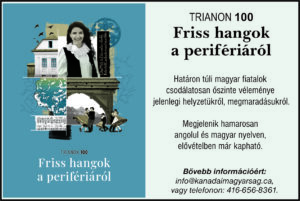“I would like to open a bank account.” relayed Google Assistant in her monotonous yet cheerful cadence. The friendly greeter leaned in slightly to speak to Google Translate, “I’m sorry, foreigners must make an appointment for next week. You can sign up here.” A sly grin crossed my lips as I pulled my Hungarian passport from my purse, “Magyar vagyok.” I said with a giggle. She made a sound of surprised delight and both of us crumbled into laughter. “Here!” she said enthusiastically, as she handed me my number and guided me to wait for the teller.
Not speaking the language and not looking like a typical Hungarian makes for some interesting interactions that are for the most part delightful, albeit sometimes a bit confusing. People here are very formal and polite by nature in public settings, making the strange occurrence of a not-so-Hungarian Hungarian an interesting break in the monotony of day-to-day business.
My name is Erika and I’m a Canadian / Hungarian citizen living in Debrecen, Hungary. I was born in Canada, where my Hungarian-born mother ended up settling with her family after their escape from the Soviet regime following the Hungarian Uprising in 1956. Their harrowing tale of escape, existential limbo in France for a year, and then finally the challenges they faced as non-English speaking immigrants to Canada is a familiar path that echoes through the history of many Hungarian families that had similar experiences.
Initially, I decided to apply for my Hungarian citizenship in anticipation of working abroad for a few years – I was traveling to Asia, and dual citizenship with an EU member state would offer that much more security and flexibility in travel options. But, after a few years working and contributing to a country that I had no real connection with other than my presence there, I began to consider what it would be like to actually live, study and work in Hungary. The idea of having the opportunity to get in touch with a culture that was all but lost to me besides the piece of paper that identified me as Hungarian was beyond tantalizing. So, I took the plunge. I applied to a study program at the University of Debrecen, and was accepted. In July, I flew to Ferenc-Liszt International airport via an exhausting 33 hour transit, and haven’t looked back since.
It’s fascinating to be able to have an experience that while not similar, parallels the experience that my grandparents had when they emigrated to Canada all those years ago under much less favorable circumstances. Each passing moment here provides me with a unique and eye-opening insight into how their culture impacted their new life in Canada.
Family history has come poetically full circle.








You must be logged in to post a comment.